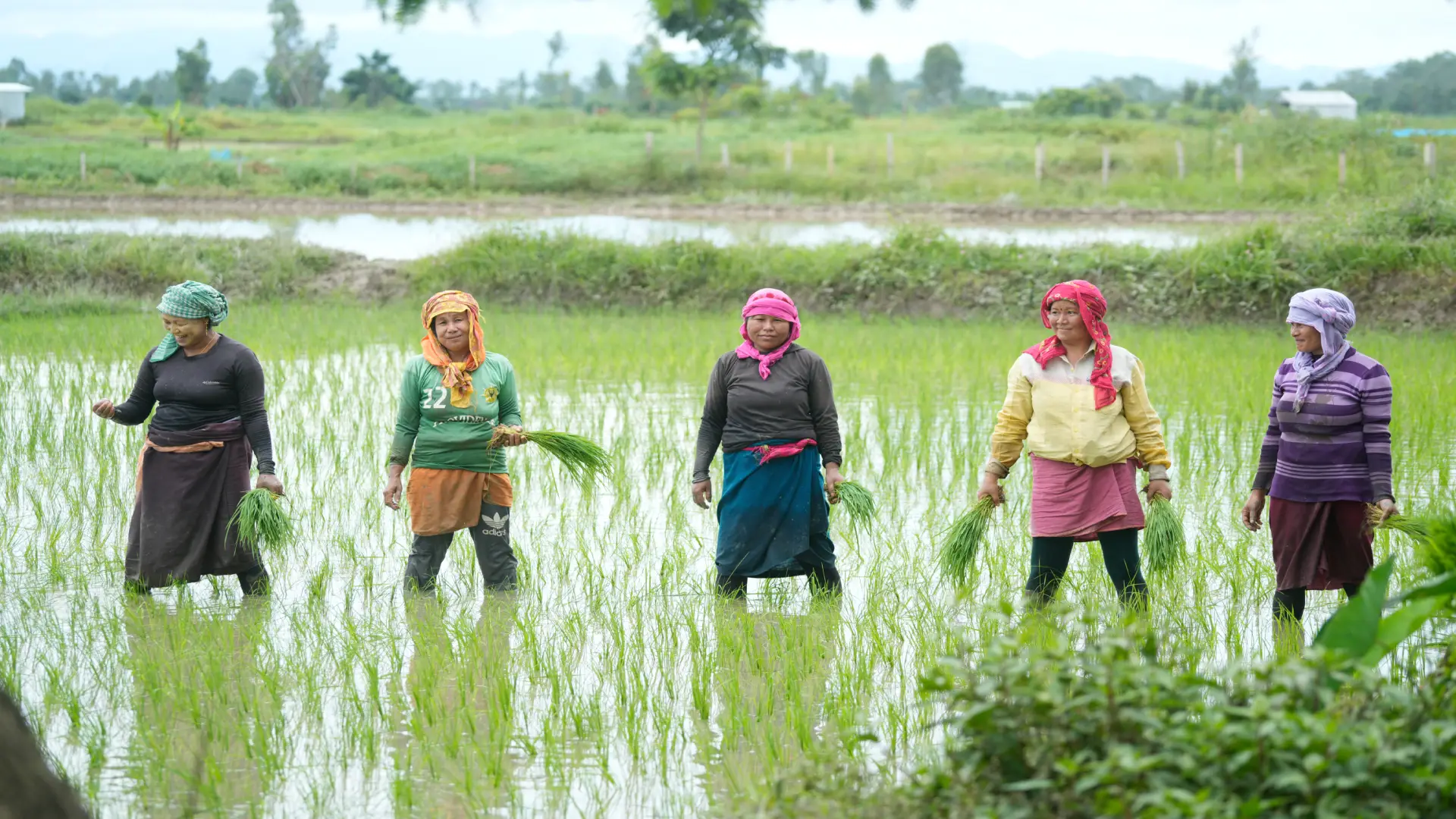Rural Upliftment

Our result-driven methodology focuses on creating lasting change through:

Community-Led Interventions
We have successfully mobilized farmers across Assam, Arunachal Pradesh, Mizoram, Manipur, and Tripura by forming over 50 Farmer Producer Organizations (FPOs) and 69 Fishery FPOs. These community structures enable collective bargaining, knowledge sharing, and market access for previously isolated rural producers.
Sustainable Agricultural Practices
We emphasize natural farming techniques, as evidenced by our success stories like the Rikseng Agro Producer Company in Dhemaji cultivating black rice across 400 bighas and the Amguri Allied Agri Producer Company in Sibsagar implementing vermicomposting for ghost chilly cultivation. These initiatives have reduced chemical inputs while improving yield and product value.


Skill Enhancement and Capacity Building
Our training programs in food processing, beekeeping, dairy processing, handloom development, and apiculture have equipped rural communities with marketable skills. Through partnerships with organizations like NABARD, NECTAR, and IIE, we’ve ensured that training translates to practical livelihood opportunities.
Climate Resilience
Understanding the vulnerability of rural Northeast communities to climate change, we conduct workshops on climate-resilient agriculture and adaptation techniques. Our millet cultivation project in Lakhimpur demonstrates how traditional crops can be revitalized to withstand changing environmental conditions.


Market Linkages
We bridge the gap between rural producers and markets through cooperative structures and marketing assistance. Our work with organizations like NIAM has strengthened the ability of farmer groups to access fair prices for their produce.
Resource Optimization
Our eight regional offices across Northeast India ensure that interventions are tailored to local conditions and resources are utilized efficiently to maximize impact.

